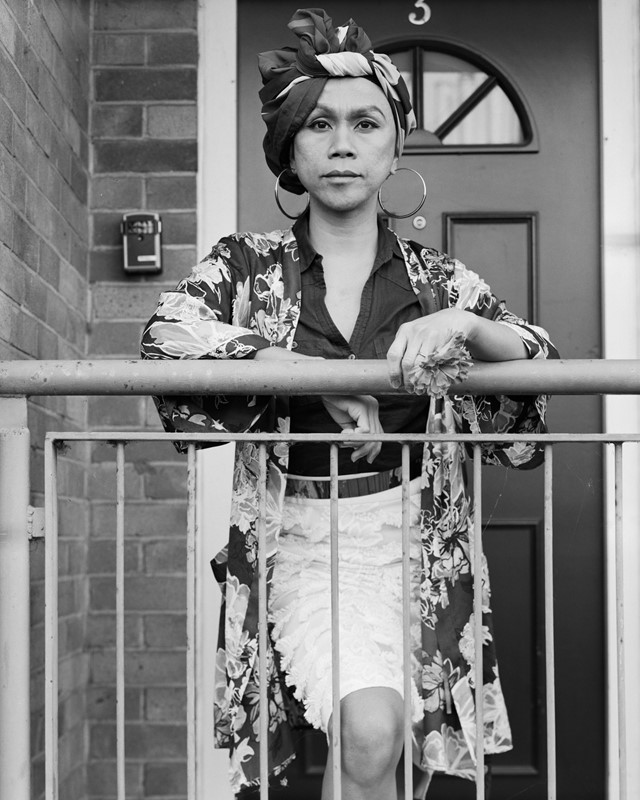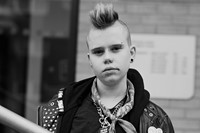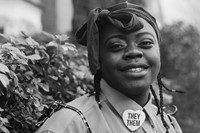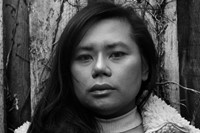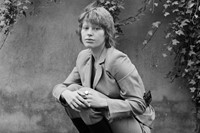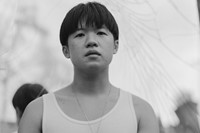“I want my photography to show that transness is not always what you think it is,” says Emil Lombardo, whose photographs of London’s trans community have just gone on display
Last winter, Emil Lombardo’s plans for a domestic portrait project were foiled by lockdown. Living alone, unable to go into his studio or enter other people’s homes, the RCA photography graduate took his camera and cycled the breadth of London taking portraits of other isolated trans people. With a quiet collected kindness, Lombardo’s shoots offered countless lonely trans people, including myself, a semblance of community via a safe encounter with another trans individual: him. Working with the restraints presented to him by the pandemic, his photographs have become a defiant yet intimate series, capturing the resilience and diversity of London’s trans community. Almost entirely taken outside the subjects’ homes, the series deals with the complex relationship between trans people and the domestic, how trans people are represented in images and the particular importance of community for trans people.
As part of Peckham 24, the series will be shown as An Unending Sunday Morning, a solo exhibition at Safehouse 1 from 10-12 September. But Lombardo has already achieved critical acclaim for these images, winning the Dundee Contemporary’s New Photography Prize 2021 and being appointed one of the Paris Photo Fair’s Carte Blanche Laureates. Over the course of October and November the photographer’s work will be shown all across the Parisian train network. As a practicing Nichiren Buddhist, Lombardo had said to me previously: “For almost a year, I’ve been chanting, that I want these people and these pictures to be seen by millions of people.” The Gare du Nord alone sees 700,000 people go through it every year. This work is a triumph of truly diverse trans visibility. Here, speaking in his own words, Lombardo tell us more about the project.
“I see my shoots as an encounter, as a collaboration; I want to listen to everything that [my subjects] want to tell me while I’m preparing. It’s like we’re going on an adventure together. And I don’t like to give directions, instead I like to create a dialogue when shooting and then just see what happens. It creates an atmosphere of openness that allows people to safely share. I genuinely care about the people that I photograph and think about them for weeks after.
“Community means a lot to queer people, and trans people in particular: there’s no liberation without community. We rely on our community and many people only have that as family. When I think about the community, I can’t stop thinking about how I grew up in the suburbs of Buenos Aires as a working-class kid in the 80s. There was zero representation, zero role models. The only LGBTQ person I knew was Freddie Mercury. I look at younger trans people today and they are so advanced for their age because they have this community. I know what it’s like to not have that support and I think that’s why community means so much for trans people. That’s why I sometimes think that I’m trying to make pictures for the child I once was. Now, the most important audience for my work is the trans teenager in the countryside in some faraway village. I want to give them some hope of representation and community.
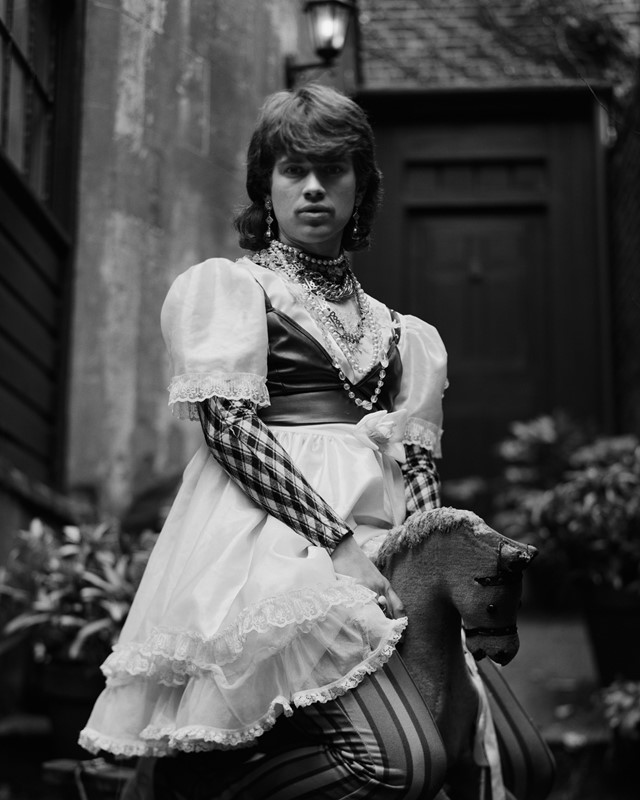
“In the context of the pandemic, marginalised communities were badly affected in general but I particularly saw it in the case of trans people. They couldn’t rely on that community, they couldn’t go to those safe spaces. In many cases, the people I photographed would tell me stories that were really difficult to hear about how they had to stay with people who didn’t support their transness. I remember one person had to move several times over the lockdown for those reasons. They said it was so hard to hear the constant order to stay at home to keep others safe, when they didn’t have a home they were safe in.
“I often see the same kind of trans representation which focuses on those who fit into cisnormative ideas. I often wonder, who’s going to photograph the non-binary person who doesn’t look androgynous, the trans woman who doesn’t want to over-perform femininity? Of course I love photographing the non-binary androgynous person and the glamorous trans woman, but I don’t want to focus only on that. I want to show the spectrum. I want my photography to show that transness is not always what you think it is.”
An Unending Sunday Morning is at Safehouse 1 in Peckham from 10-12 September.
